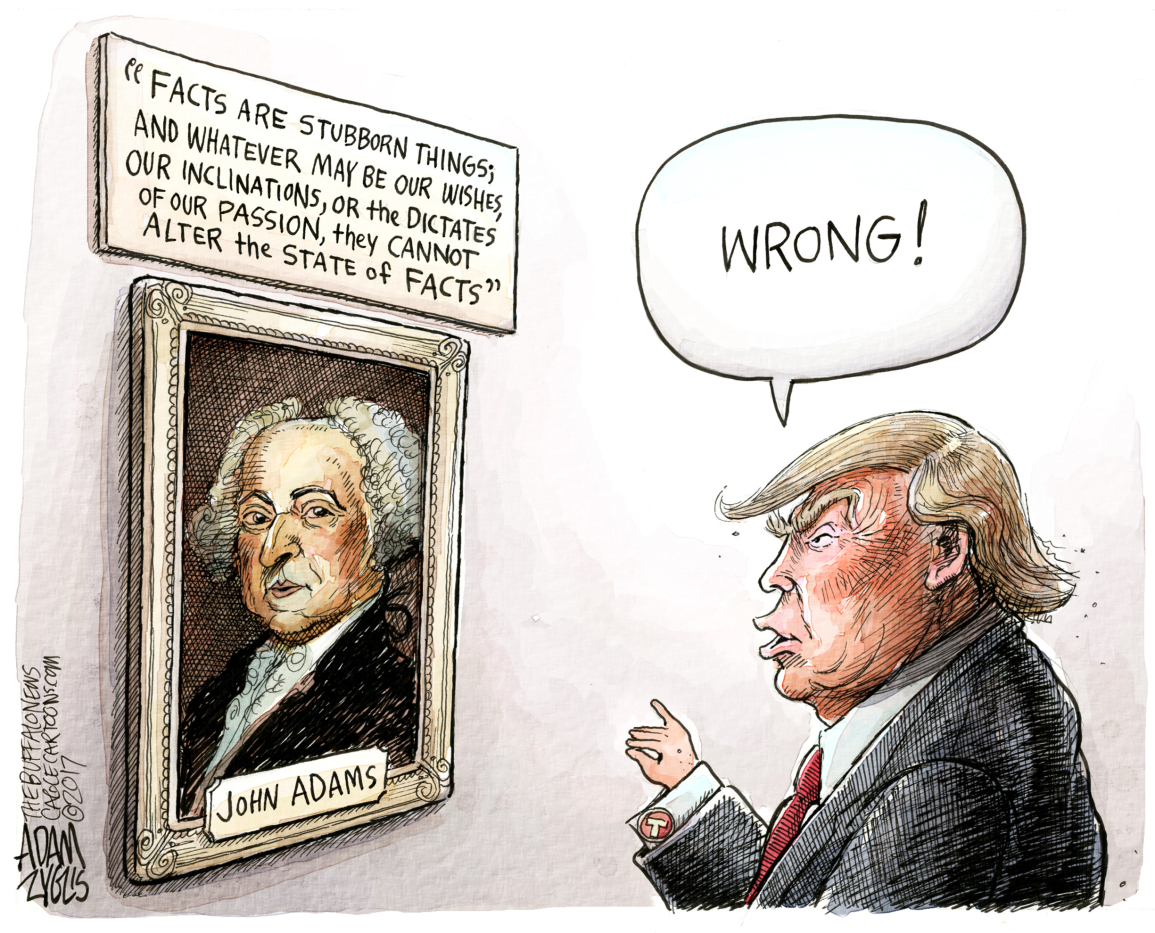
All of the information surrounding Trump is full of fabrications that make it difficult to distinguish truth from lies.
Coinciding with the election and the newly inaugurated President Donald Trump, it has become fashionable to criticize the appearance of false news, which many call “post-truth,” as if the lies of an entire lifetime were an unprecedented novelty. A novelty, moreover, boosted from the shadows by conspiring oligarchs, of course, neoconservatives. However, as soon as we stop to think about the numerous mantras coming from all political sides that are published daily, perhaps the most critical analysts should consider whether they themselves are in fact contributing to the emergence of “alternative facts.”
Concerning Trump, specifically, less than 48 hours after his presidency began, it circulated as a proven truth that his administration had deleted the Spanish version of the White House website. No print media or any talk show had the patience to wait for the new spokesman for the administration to explain that, far from being a political decision, it was a technical adjustment, but the damage was already done and it did not matter even after the tweets in Spanish began. Almost the same could be said about the measure suspending the Trans-Pacific Partnership, without referring to the remote possibility that the treaty would be ratified by Congress or mentioning that the Democratic candidate had also suggested the possibility of halting the agreement. True, Trump’s hostile and aggressive attitude does not help, but all of the information surrounding the new president is so full of fabrications that it becomes impossible to distinguish the wheat from the chaff.
You can also look to Spain to see “post-truths” reproduced, apparently, in the most unexpected places. For example, the slogan for the new project to convert the Gran Via in Madrid into a pedestrian zone is that all of the world’s capital centers are closed to traffic. Yet anyone who has visited Paris, London, New York, Stockholm or Amsterdam knows that access by car to the urban area is perfectly viable, and at most, discouraged by certain fees. Another indisputable “fact,” endlessly repeated by those who boast about “critical thinking,” is found in the precariousness of job insecurity, when it turns out that today that the number of permanent work contracts are at more than 73 percent, while before the crisis in 2007, the number was at 69 percent.
Added to this are the apocalyptic omens about the risk of poverty based on indicators that say “severe material deprivation” means to suffer one of the following situations: inability to go on vacation, delayed payment of rent or mortgage, not having a car, washing machine or television, or not having the option of eating meat or fish every other day. This makes us question if our parents could have experienced a “social emergency,” and even more so, if those who suffer any of these shortcomings consider themselves “at risk of exclusion.” I could go on listing examples of headlines that appear daily, and no matter how “politically correct” they are, they are no more true than the promises that many politicians offer during their campaigns.
That’s it. Maybe the experts and “opinion leaders,” instead of blaming their failed forecasts (Brexit, Trump’s victory, Colombia’s referendum…) on a new post-truth engineered as a conspiracy of tycoons, have to ask whether it has been their own prejudices that contribute to the fact that no one can give credit to their rigorous analyses.
That said, this is not about accusing one side or another according to reactive impulses and sectarian criteria. In the discussions that occur in public spaces, especially in the media, we are all responsible for acting in good faith, with fairness and respect for those who think differently beyond our legitimate personal opinions. Having often neglected these basic ethics, it would not be improbable to suspect that the establishment itself has sown the seeds of populism.
The author, Jesus Andreu, is director of Fundación Carolina.

Leave a Reply
You must be logged in to post a comment.